Steroids, self-injections and medications can be game changers
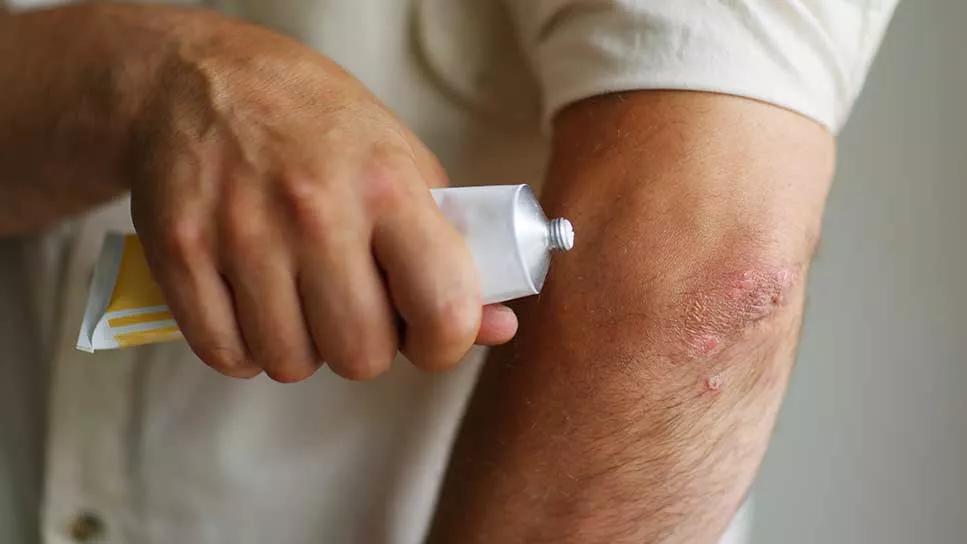
Proper eczema skin care and home treatment are important for everyone with eczema. And for some people, that’s enough. In some cases, eczema can be well managed with little more than the right eczema cream and simple home remedies.
Cleveland Clinic is a non-profit academic medical center. Advertising on our site helps support our mission. We do not endorse non-Cleveland Clinic products or services. Policy
But for some people living with more severe eczema, those steps just aren’t enough. When eczema flares affect your life, it’s time to consider adding more tools to your eczema-fighting toolkit.
“Eczema treatments are like rungs on a ladder,” illustrates dermatologist Kathryn Anderson, MD. “There are baseline treatments that help lessen the severity. And then, we can layer on some additional interventions with increasing levels of intensity, depending on how your condition responds.”
What are the treatment options for severe eczema? And what can you expect from those treatments? Dr. Anderson shares.
When it comes to severe eczema treatment, it’s a good news/bad news situation.
Let’s get the bad news out of the way: Eczema is a chronic condition that doesn’t have a cure.
The good news? While eczema can’t be cured, healthcare providers these days have a lot of options for managing even severe cases.
“We’ve got treatments that work pretty darn well for most people,” Dr. Anderson says. “But it can take some time and some trial and error to find the right recipe for each person. I think of it as a step treatment. You don’t want to overtreat and incur unnecessary costs and side effects, but you want to treat their condition properly so they’re comfortable in their skin.”
Let’s take a look at the rungs on the eczema-treatment ladder.
Your first line of defense against eczema itch is self-treatment with over-the-counter products. That includes things like:
“Home care is important for anyone with eczema. And for mild cases, it might be enough,” Dr. Anderson reiterates. “But if it’s not improving, it’s time to see a healthcare provider for further interventions.”
For example, if eczema is affecting your sleep, if you develop an infection or if your eczema is keeping you or your child from being able to concentrate at work or school, it’s time for a talk with your provider.
Most providers will start prescription eczema treatment with topical corticosteroids. These medications are formulated as oils, ointments and creams that you rub on patches of eczema during a flare.
Topical corticosteroids (also known as simply “steroids”) are among the most common prescription treatments for eczema. Steroids are a kind of anti-inflammatory drug. They help tamp down the immune system response that leads to eczema.
“Topical steroids are a mainstay treatment for eczema because we know they work,” Dr. Anderson advocates. “And they come in a variety of potencies. There are options that are gentle for the face, stronger ones for the body and ultra-potent ones for really bad flares or flares on thick areas of skin, like the hands and feet.”
Topical steroids should be used only in places where you have an active eczema flare. And they should only be used for short periods of time.
“Steroids can thin your skin and lead to things like stretch marks and more prominent blood vessels,” Dr. Anderson warns. “We usually try to limit topical steroid use to no more than two weeks out of every month.”
If you find you need topical steroids more often than that, it’s time to talk about the next step.
If you’re relying too heavily on topical steroids, your provider may add on other topical treatments, like calcineurin inhibitors, PDE-4 inhibitors or JAK inhibitors.
They can be used more frequently as a part of an eczema maintenance regimen. And they can be used in combination with topical steroids, too.
Dr. Anderson says those medications can be used consistently to help keep flares at bay. “These topical treatments don’t come in as wide of a variety of vehicles and potencies, but they’re good options for people who need more consistent treatment.”
Still having flares? Time for the next step up.
People undergoing phototherapy enter a special booth that delivers UVB light to affected areas. The idea is that using a special wavelength of UVB light can decrease inflammation and keep eczema under control.
“Phototherapy is nice because it doesn’t have the potential side effects of internal medications, but it has its downsides, too,” Dr. Anderson notes.
For starters, it’s not the most convenient option. Initially, you may have to visit your provider’s office multiple times per week. (If your provider has access to a phototherapy booth, that is.) And insurance coverage can be a barrier, too.
Light therapy not cutting it for you? Let’s keep going up the ladder.
When treating individual eczema spots isn’t effective, your provider may turn to more whole-body treatments. Medications like antihistamines can help relieve itchiness, especially at night. And antibiotics can help take care of secondary infections in skin affected by eczema.
But there are also pills and injections that can help manage the root causes of eczema, not just the effects.
Dr. Anderson explains some of the options.
Immunosuppressant medications have been around for a long time. They include medications like methotrexate, cyclosporine and more.
Eczema is, in part, a result of an overactive immune system. The idea of immunosuppressants is to lower that immune system response and — ta-da! — control eczema flares.
But systemic immunosuppression can come with some unwanted side effects — perhaps most importantly, an increased susceptibility to infections.
“Immunosuppressants calm the entire immune system, including the aspect that’s causing eczema flares. But they also calm the part of your immune system that fights infections,” Dr. Anderson explains.
For that reason and others, immunosuppressants aren’t used as often as they have been in the past. But they’re still an effective treatment, and a great option for some people.
Some of the newer systemic medications for eczema are JAK inhibitor pills. These medications block off messages between your cells that lead to inflammation.
“They’re more targeted than old-school immunosuppressant medications because they’re not outright lowering your entire immune system,” Dr. Anderson says. “Instead, they act to quiet an area of the immune system that’s associated with eczema.”
Another systemic option for managing eczema comes in the form of two self-injection medications.
“The injection medications focus on the inflammatory component of your immune system,” Dr. Anderson says. “So, they don’t lower your immune system overall, but they can help to calm down the inflammation that contributes to eczema.”
These medicines are self-injections, meaning you use them on yourself at home. They’re approved for children and babies as young as 6 months. Treatment typically is only every other week.
If severe eczema is affecting your life, talk with your healthcare provider. They can help you find the right treatment (or treatment combination) that will work best for you.
Learn more about our editorial process.

Sea lice aren’t really lice, but these tiny creatures can trigger an unpleasant allergic reaction
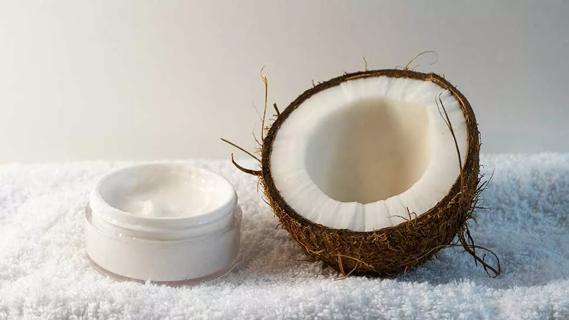
Colloidal oatmeal, petroleum jelly and other around-the-home products can help provide needed relief
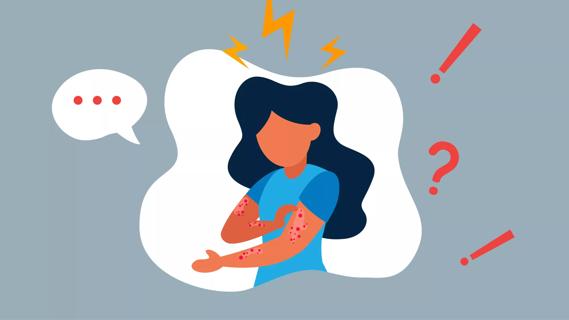
Your body’s natural response to stress can lead to painful skin irritation
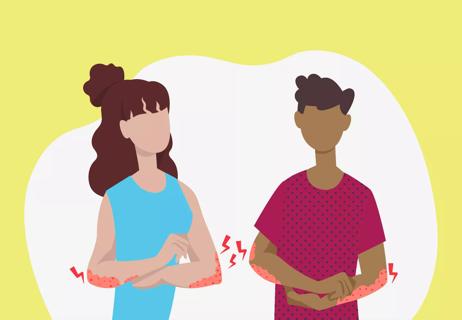
From hyperactive immune response to disordered nerve connections, the itch is real
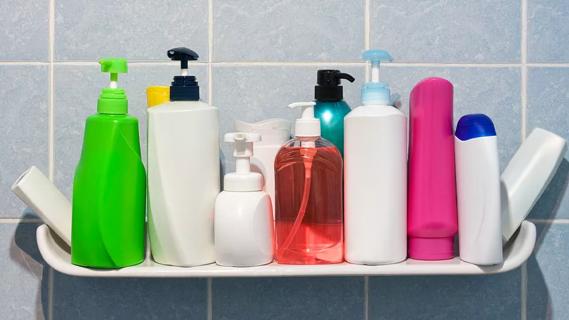
Eczema triggers are different for everyone, but there are some common ways to manage and prevent flare-ups

Hot or cold, your eczema can have flare-ups during multiple times of the year
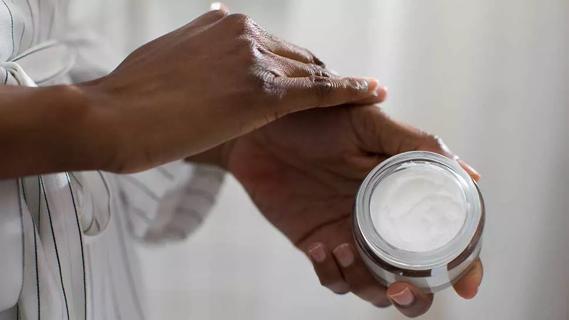
Keep your showers short and lukewarm, and moisturize promptly after with a cream containing ceramides

Options range from allergic reactions and head lice to chronic conditions and fungal infections

Your metabolism may torch 1,300 to 2,000 calories daily with no activity

A gentle touch in all the right places may help drain your sinuses